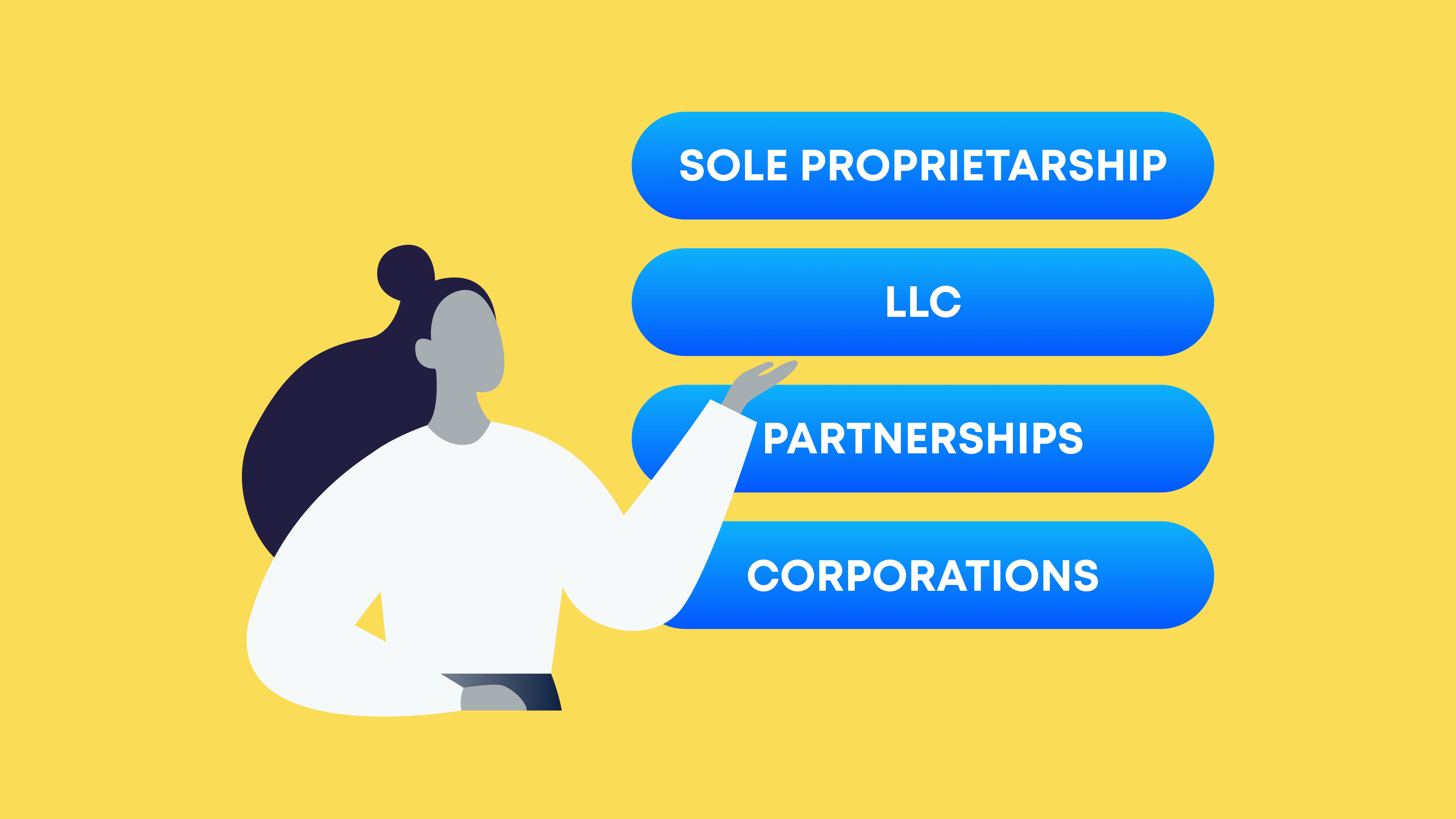Types Of Business Ownership
There are several types of business ownership structures, each with its own advantages, disadvantages, and legal implications. The choice of business ownership structure depends on factors such as the size of the business, the number of owners, liability considerations, tax implications, and management preferences. Here are some common types of business ownership:
- Sole Proprietorship:
- Owned and operated by a single individual.
- Simplest form of business ownership.
- The owner has complete control and is personally responsible for all business debts and liabilities.
- Taxed on the owner’s personal income tax return.
- Partnership:
- Formed by two or more individuals who agree to share profits, losses, and responsibilities.
- Partnerships can be general (equal sharing of profits and losses) or limited (limited liability for some partners).
- Partnerships are typically governed by a partnership agreement.
- Profits and losses flow through to the individual partners’ tax returns.
- Limited Liability Company (LLC):
- Offers limited liability protection to its owners (members).
- Provides flexibility in management and taxation.
- Members can choose to be taxed as a sole proprietorship, partnership, S corporation, or C corporation.
- LLCs are governed by an operating agreement.
- Corporation:
- A separate legal entity from its owners (shareholders).
- Provides limited liability protection to shareholders, meaning their personal assets are generally protected from business debts and lawsuits.
- Two common types of corporations are S corporations (pass-through taxation) and C corporations (double taxation, but more flexibility in ownership and structure).
- Governed by bylaws and subject to stricter regulatory and reporting requirements.
- S Corporation:
- A type of corporation that elects to pass income, losses, deductions, and credits through to its shareholders for federal tax purposes.
- Limited to 100 or fewer shareholders.
- Avoids double taxation at the corporate level.
- C Corporation:
- A standard corporation subject to corporate income tax.
- Offers greater flexibility in terms of ownership, but profits are subject to double taxation (once at the corporate level and again at the individual shareholder level).
- Cooperative (Co-op):
- Owned and democratically controlled by its members, who share in the decision-making and profits.
- Common in agriculture, retail, and some service industries.
- Members may receive dividends based on their level of participation.
- Franchise:
- A business model where individuals or entities (franchisees) purchase the right to operate a business under the brand and support of a larger organization (franchisor).
- Franchisees typically pay fees and royalties to the franchisor in exchange for training, marketing, and operational support.
- Nonprofit Organization:
- Operated for a charitable, educational, religious, or other socially beneficial purpose.
- Typically exempt from certain taxes.
- Governed by a board of directors.
- Joint Venture:
- A temporary partnership or collaboration between two or more businesses for a specific project or purpose.
- Each party shares in the risks, costs, and rewards of the venture.
The choice of business ownership structure should be made carefully after considering legal, financial, and operational factors, and it may involve consulting with legal and financial professionals. Additionally, the specific regulations and requirements for each structure may vary by country and region.
